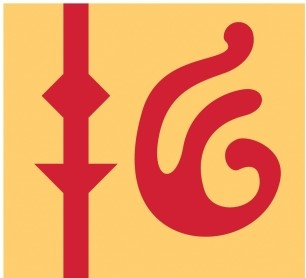Exam 4: Perceiving and Recognizing Objects
What is unique about face perception and how is it different than object perception?
Faces are different than other objects because all faces have the same parts in the same relationships with one another (e.g., eyes above nose, which is above the mouth). Therefore, fine metric details of faces are important in recognition, and it seems the visual system represents faces holistically in terms of these fine metric details, whereas it does not in the case of objects. Further evidence that the visual system treats faces and objects differently is the double dissociation between face and object recognition regions of the brain. Some patients with brain damage develop object agnosia and cannot recognize objects but can still recognize faces. Other patients develop prosopagnosia and thus cannot recognize faces but can recognize other objects. Finally, inverted faces are much harder for us to recognize than inverted objects, suggesting that faces are processed differently than objects.
The principle of relatability helps us to understand
A
The fact that faces are more difficult than many other types of objects to recognize when viewed upside-down is taken by many researchers to indicate that
The visual system tends to divide an object into parts by "cutting" it at _______ in its silhouette.
If an animal has a pattern on its body that provides camouflage and allows it to blend seamlessly into the background, it is trying to prevent _______ by predators that would reveal its location.
Which Gestalt grouping cue explains why a flock of birds flying in formation are perceived to be grouped?
Prosopagnosia is a neuropsychological disorder in which the patient
Which of the following is a loosely defined stage of visual processing that comes after basic features have been extracted from the image, and before object recognition and scene understanding?
Refer to the figure.
 Which Gestalt figure-ground assignment principle is most responsible for perceiving the yellow portions in the image as "ground"?
Which Gestalt figure-ground assignment principle is most responsible for perceiving the yellow portions in the image as "ground"?
If we use fMRI to measure your brain activity with your eyes open and then again with your eyes closed, and then identify the areas that differ between those two conditions, which brain imaging method are we using?
Explain the Gestalt grouping principles of good continuation, similarity, proximity, and surroundedness.
A study of cells in IT cortex showed that they responded to very specific stimuli, such as
Which of the following is not a cortical area that has been identified as processing very specific forms of visual stimuli?
A _______ process is one that carries out a computation (e.g., object recognition) one neural step after another, without the need for feedback from a later stage to an earlier stage.
Which of the following is an entry-level object category term?
Filters
- Essay(0)
- Multiple Choice(0)
- Short Answer(0)
- True False(0)
- Matching(0)